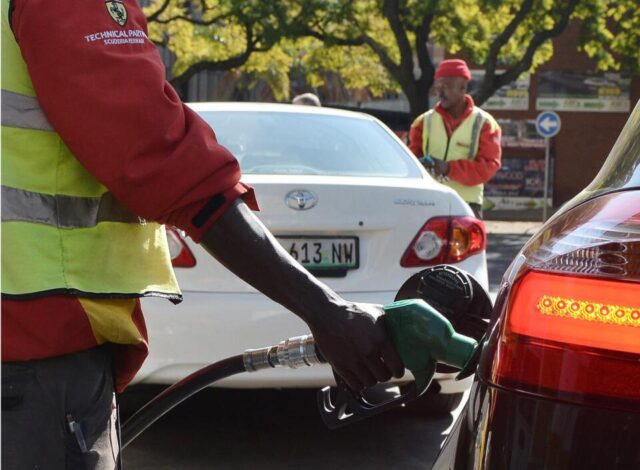According to the latest daily snapshot from the Central Energy Fund, 95 Unleaded petrol is looking set to increase by close to R2 per litre, while diesel is set to rise by close to R3.
SOUTH African motorists will be singing along to Green Day’s hit song ‘Wake Me Up When September ends’ as fuel prices are expected to increase drastically in the coming month.
It is unfortunate that global supply and demand issues, driven by some geopolitical pressures and the weakening rand, brought such a huge increase at a time when both motorists and fuel retailers are battling hard to survive, says Fuel Retailers Association (FRA) CEO Reggie Sibiya.
According to the latest daily snapshot from the Central Energy Fund, 95 Unleaded petrol is looking set to increase by close to R2 per litre, while diesel is set to lift by close to R3.
Sibiya said the hardships experienced by motorists translated to low fuel consumption, which further affected retailers’ profitability, which they said was already very compromised by under-recovering margins, increased credit card costs linked to rising pump prices, increased bank charges to service increasing overdraft facilities and affecting cash flows.
“Whilst we have enjoyed some brief relief the turnaround has been too drastic and a shock to the system,” Sibiya said.
The FRA added that it was very unfortunate that this petrol price hike coincided with the annual adjustment to petrol attendants’ wages, which was critical to ensure employees’ needs were also taken care of.
“This wage component is an in and out and does not contribute at all to the retailers’ profits.”
However, wage component increase is only 5cpl and insignificant when compared to a price increase over R2.00 a litre for example on diesel, said Sibiya.
Benay Sager, head of DebtBusters, said that fuel prices having increased significantly in the last few years has been extremely costly for the average consumer.
He said that any subsequent increase from this point on would also eat into any potential disposable income that consumers may have.
“We already know that fuel-spend is a significant portion, either directly in terms of what consumers spend at the pump, or indirectly in terms of their transport costs with taxis, buses, trains and the likes. Any petrol cost increases will be passed on to the consumer by the operator, so we foresee that the disposable income of the consumer will shrink even further,” Sager said.
DebtBusters added that the fuel price hike was also going to eat into any opportunities consumers might have, particularly if they need petrol to fuel their own side-hustles.
It added that in the long term, this would also have an impact on food inflation, as it gets passed on to consumers in the long run.
“I think times will just be even more difficult for the South African consumer and it also takes money away from potential investment that people would make, as all of a sudden there is a significant petrol price hike that they need to deal with. It’s essentially not good for investment.”
Head of marketing at Wonga, James Williams said fuel price hikes drove up the cost of living for the average South African across all areas of their lives.
He said with rising fuel costs, personal and public transport costs increase, and it also has a direct lagging impact on the cost of goods and services, particularly fast-moving consumer goods such as groceries which were transported around the country by road.
“This will hit already cash-constrained consumers hard, who along with high-interest rates, are now likely to see an uptick in the rate of inflation-which, for the first time in two years, showed some recovery to 4.7% for July according to data released by StatsSA. We expect that this round of fuel price increases will reverse some of the gains made in the Consumer Price Index and advise South Africans to budget for these increases in fuel and the general cost of living accordingly by adjusting their monthly budget,” Williams said.
Wonga said the impact of the fuel price hike would be further felt in the informal and gig economies.
“Our recent Side Hustle Survey conducted earlier this year showed that as many as 37% of people have to subsidise their side hustle with money earned in their day job. Unfortunately, the increased fuel costs will place pressure on these people’s ability to maintain their side hustle over the coming months as any disposable income they may have had to supplement their side gig, may be taken up by the likely increased cost of living.”
The Automobile Association warned that the huge diesel price increase will eventually lead to higher grocery bills, among other things.
“These surges in prices will pile pressure on all diesel users, but particularly large users in the agricultural, retail, manufacturing, and retail sectors. Consumers should brace for increases at the till as costs are recovered through higher prices,” the association said.
– BUSINESS REPORT








